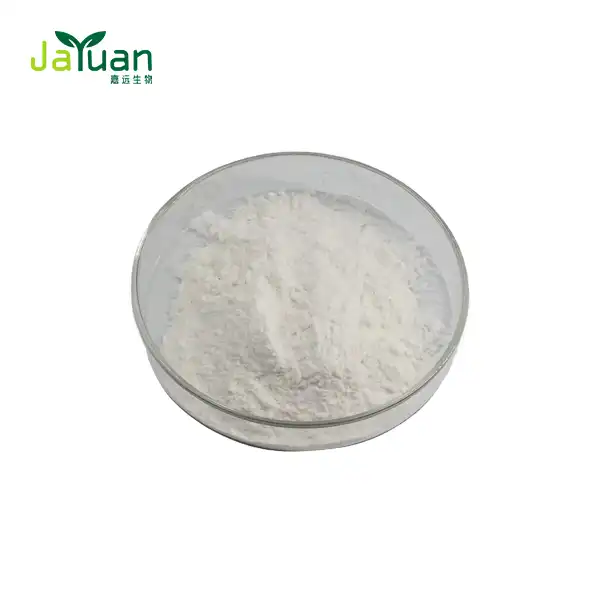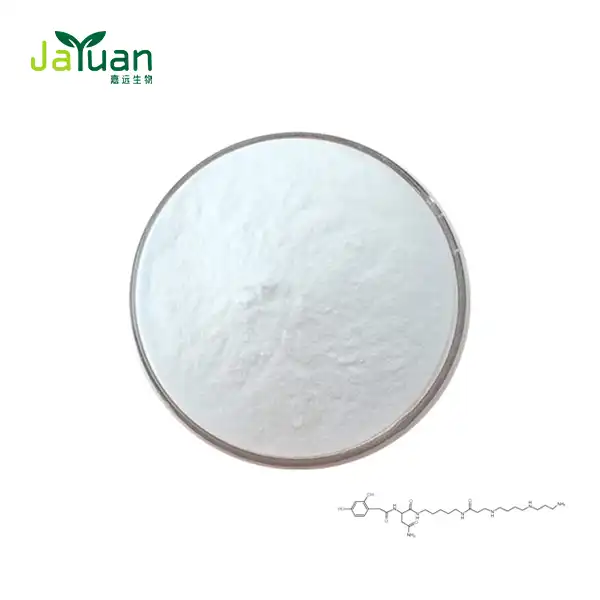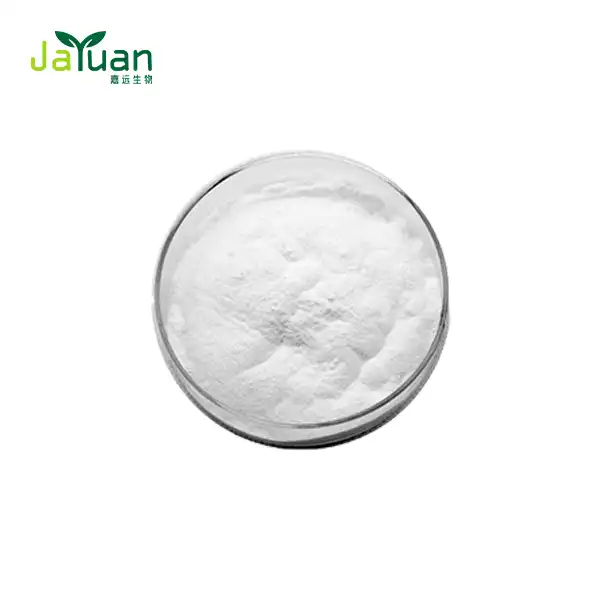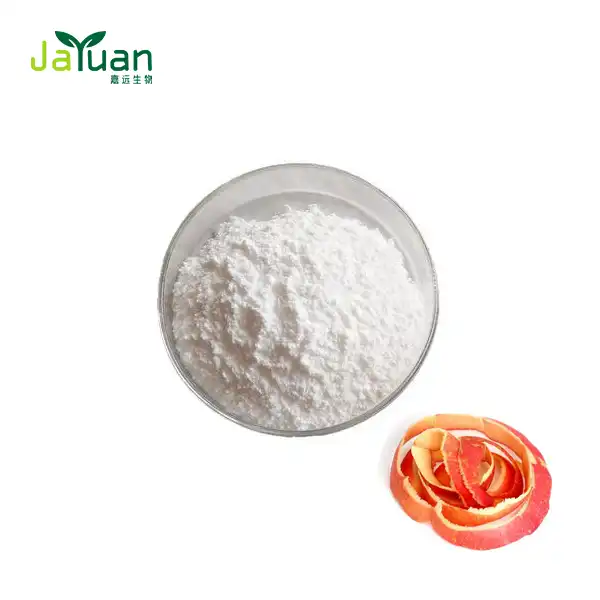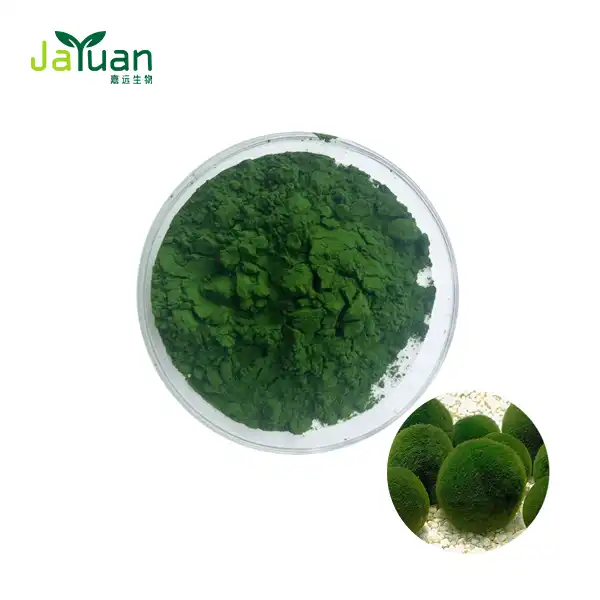Is Octacosanol the Same as Policosanol?
Introduction
Long-chain alcohols such as octacosanol and policosanol are found in a variety of plants, such as sugarcane, wheat germ, and rice bran. Their possible health advantages have been investigated, namely their effects on exercise performance and cholesterol levels. Despite their similar names, octacosanol and policosanol are distinct compounds with different chemical structures and properties.
Waxy in nature, octacosanol is derived from a variety of plants, including sugarcane, rice bran oil, and wheat germ oil. Its possible effects on endurance, energy metabolism, and exercise performance have been researched. Some research suggests that octacosanol may enhance muscle strength and endurance, possibly by improving oxygen utilization and increasing the efficiency of energy production in the body. These findings have generated interest in octacosanol as a dietary supplement for athletes and individuals seeking to improve their physical performance. Conversely, policosanol is a blend of long-chain alcohols made from beeswax or sugar cane wax.
One of the most well-studied components of policosanol is octacosanol, but it also contains several other alcohols such as triacontanol and hexacosanol. Policosanol has been investigated for its potential cholesterol-lowering effects, with some studies suggesting that it may help reduce LDL (low-density lipoprotein) cholesterol levels while increasing HDL (high-density lipoprotein) cholesterol levels. These lipid-modulating properties have led to interest in policosanol as a natural alternative for managing cholesterol levels and supporting cardiovascular health.Both octacosanol and policosanol have been the subject of numerous research studies exploring their potential benefits and mechanisms of action.

Chemical Composition
Octacosanol: Octacosanol is a specific form of octacosanol alcohol that contains 28 carbon atoms in its molecular structure. It is frequently utilized as a nutritional supplement and is frequently present in wheat germ oil. Octacosanol has been studied for its potential to improve exercise performance and endurance.
Policosanol: Policosanol, on the other hand, is a mixture of long-chain alcohols that contains a range of carbon chain lengths, typically from 24 to 34 carbon atoms. It has been studied for its ability to reduce cholesterol and enhance cardiovascular health. It is made from sugarcane wax.
Health Benefits
Octacosanol: Some studies suggest that octacosanol may help improve exercise performance by increasing endurance, reducing fatigue, and enhancing oxygen utilization. However, more research is needed to confirm these effects and understand the mechanisms involved.
Policosanol: Policosanol has been more extensively studied for its potential health benefits. Research suggests that it may help lower LDL (bad) cholesterol levels, increase HDL (good) cholesterol levels, and improve overall cholesterol profile. Policosanol may also have anti-inflammatory and antioxidant properties.
Safety and Side Effects
Octacosanol: Octacosanol is generally considered safe when taken at recommended doses. One of the primary concerns regarding the safety of octacosanol is its potential interaction with medications. Since octacosanol may affect certain enzymes in the liver that are involved in drug metabolism, there is a possibility of interactions with medications metabolized by these enzymes. Individuals taking prescription medications should consult with their healthcare provider before starting octacosanol supplementation to ensure there are no potential interactions.
When supplementation is stopped or the dosage is changed, these side effects usually disappear on their own.Furthermore, taking octacosanol supplements may demand caution for people with specific medical disorders, such as liver illness or reduced liver function.
People with liver-related health problems may be more susceptible to negative effects or complications because the liver is essential for the metabolism of octacosanol.
It's also essential to consider the source and purity of octacosanol supplements. While octacosanol derived from natural plant sources is generally considered safe, supplements of questionable quality or purity may pose risks. To mitigate these risks, it's advisable to choose supplements from reputable manufacturers that adhere to stringent quality control standards.

Policosanol: Policosanol is also considered safe for most people when used as directed. Side effects are rare but may include digestive upset, headache, insomnia, and skin rash.
One of the primary concerns regarding the safety of policosanol is its potential impact on liver function. Some studies have suggested that high doses of policosanol may lead to liver enzyme abnormalities in a small percentage of individuals. However, these effects are typically mild and reversible upon discontinuation of policosanol supplementation. Nonetheless, individuals with existing liver conditions or those taking medications that affect liver function should exercise caution and consult with their healthcare provider before using policosanol supplements. Some people may experience gastrointestinal adverse effects, such as upset stomach, bloating, or diarrhea, especially upon beginning policosanol supplementation or when taking high doses. Usually minor and temporary, these adverse effects go away on their own with time or when the dosage is lowered.
Furthermore, there have been isolated reports of allergic reactions to policosanol, although such occurrences are rare. Individuals with known allergies to sugar cane or beeswax should exercise caution when using policosanol supplements and consider alternative options if necessary. As with any dietary supplement, the source and quality of policosanol products are essential factors to consider. Choosing supplements from reputable manufacturers that adhere to strict quality control standards can help mitigate the risk of contaminants or impurities. It's also worth noting that while policosanol has been extensively studied for its potential cholesterol-lowering effects, the evidence supporting its efficacy remains somewhat mixed. While some studies have reported significant reductions in LDL cholesterol and improvements in lipid profiles, others have found more modest or inconsistent results.
Therefore, individuals considering policosanol supplementation for cholesterol management should weigh the available evidence and consult with their healthcare provider to determine the most appropriate course of action.Conclusion
In conclusion, octacosanol and policosanol are not the same compounds. Octacosanol is a specific form of long-chain alcohol found in wheat germ oil, while policosanol is a mixture of long-chain alcohols derived from sugarcane wax. While both compounds have been studied for their potential health benefits, policosanol has been more extensively researched, particularly for its effects on cholesterol levels and cardiovascular health. As with any supplement, it is important to talk to your healthcare provider before starting octacosanol or policosanol supplementation, especially if you have any underlying health conditions or are taking medications.
For more information about these products, please contact sales@jayuanbio.com.


